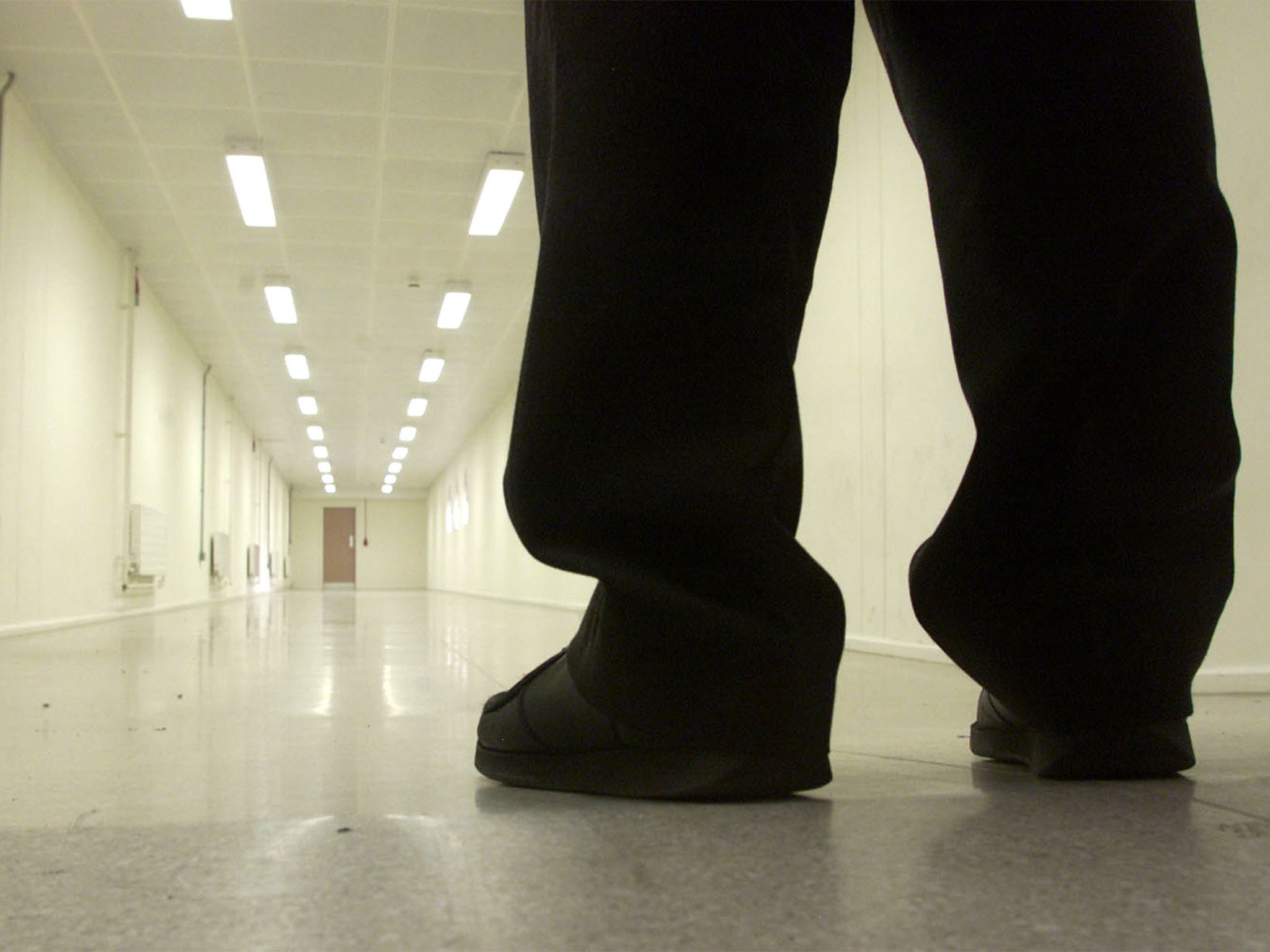Yarl's Wood conditions and treatment deteriorated significantly since 2013
Female detainees said staff treated them 'like animals' and that their experiences had left them with mental health problems

Conditions at a privately run immigration removal centre have “deteriorated” over the past year to the extent that almost half of the women held there fear for their safety, according to a damning report published by the Chief Inspector of Prisons.
Some vulnerable female asylum-seekers detained at Yarl’s Wood in Bedfordshire said staff treated them “like animals” and that their experiences had left them with anxiety, depression, sleep disruption and mental health problems, the report by Nick Hardwick found. “Our whole lives have been changed by Yarl’s Wood,” one said.
In one shocking case, a woman told staff that she had come to the UK after being raped at gunpoint by three men and was suffering from panic attacks, sleep loss and flashbacks. The Home Office responded by saying that rape “did not constitute torture” and that she should continue to be detained.
Inspectors who visited the centre in April discovered that 99 pregnant women were detained there last year, despite official Home Office policy stating that this should only happen in exceptional circumstances. One woman, who was 15 weeks pregnant when inspectors visited, missed her 12-week scan while she was in Yarl’s Wood and ran out of vitamin supplements because staff failed to order them in time.
Yarl’s Wood is operated on behalf of the Government by the private company Serco but since September last year its healthcare services have been provided by G4S, another outsourcing firm. Inspectors said that of all the areas in the centre, “health care had declined most severely” since they last visited in June 2013 and that it had become a “place of national concern”.
In an anonymous survey of current and former detainees, 54 per cent of the women held at Yarl’s Wood said they felt depressed or suicidal when they first arrived. Almost half (45 per cent) said they felt unsafe while they were there due to the centre’s poor healthcare, lack of staff and continuing uncertainty around their immigration status. However, 80 per cent said that they were treated with respect by most staff, and Mr Hardwick said workers in the centre should not be blamed for its deterioration.
In the light of his findings, Mr Hardwick said women should only be detained “as a last resort” and for the first time called on the Government to introduce a strict time limit on the length of time that asylum-seekers can be locked up.
His view echoes that of a parliamentary inquiry earlier this year, which suggested a 28-day maximum limit on detention amid evidence that spending any longer locked up can be catastrophic for detainees’ health. The UK is the only country in the EU which has no limit on the length of time that asylum-seekers can be detained.
“Yarl’s Wood has deteriorated since our last inspection and the needs of the women held have grown,” Mr Hardwick said. “In my view, decisive action is needed to ensure women are only detained as a last resort. Depriving anyone of their liberty should be an exceptional and serious step.
“Other well-respected bodies have recently called for time limits on administrative detention. In my view, the rigorously evidenced concerns we have identified in this inspection provide strong support for these calls, and a strict time limit must now be introduced.”
Maurice Wren, chief executive of the Refugee Council, called for Yarl’s Wood to be closed. “The fact that people fleeing war and persecution are being locked away indefinitely in a civilised country is an affront to the values of liberty and compassion that we proudly regard as the cornerstones of our democracy,” he said.
Sonya Sceats, director of policy and advocacy at the charity Freedom from Torture, said Mr Hardwick’s report showed something was “really rotten in the immigration system” and called on the Home Office to accept that “asking for protection in the UK is not a crime”.
A Home Office spokesperson said some of the report’s findings were “extremely disappointing”. They added: “Working with our partners, we want to make sure standards in the centre improve, especially regarding the provision and delivery of healthcare. We are committed to treating all detainees with dignity and respect. We aim to protect the health and wellbeing of those we are detaining at all times.”
John Shaw, managing director for public services at G4S, said: “This report acknowledges the challenges which we inherited at Yarl’s Wood when we took over the healthcare provision last year, and we are currently reconfiguring the service to address a growing number of more complex medical requirements at the centre.”
Julia Rogers, Serco’s managing director of home affairs, said she was “pleased” that four out of five Yarl’s Wood detainees said they were treated with respect by staff. “We are working very hard to increase the proportion of female staff in the centre and we have just completed a training course from which 11 new female officers graduated,” she added.
“We are also conducting a full review of the reception and induction processes and efforts are being made to shorten the time that women spend in reception when arriving at the centre.”
Subscribe to Independent Premium to bookmark this article
Want to bookmark your favourite articles and stories to read or reference later? Start your Independent Premium subscription today.
